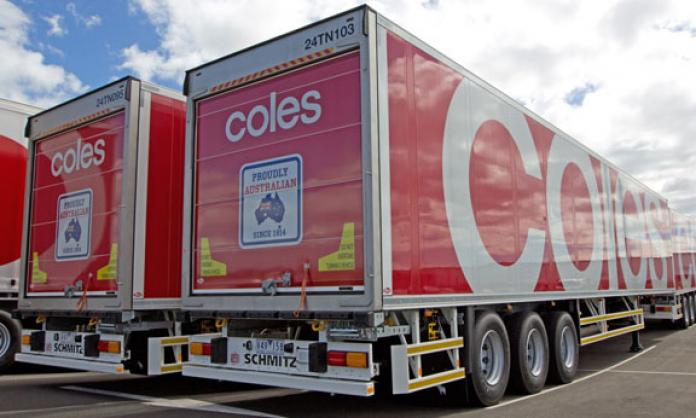Seven hundred workers at a major warehouse in Melbourne’s west have voted overwhelmingly for an indefinite strike. The workers, at the giant Polar Fresh warehouse in Distribution Drive, Truganina, work around the clock in chiller rooms to keep Coles supermarkets in Victoria supplied with fresh produce and chilled goods.
As well as improvements to breaks, allowances and training, the workers and their union, the National Union of Workers, are demanding an immediate increase in the base rate from $27 to $30 per hour; strict controls on labour hire and casual employment to increase job security; and a two-year agreement that will enable the workers to take legal industrial action alongside other workers in the Coles distribution network in the future.
The workers are up against some of the largest companies in the country. Coles made a profit of $1.78 billion last year – an increase of more than 50 percent since 2011. New Coles chief executive Ian Durkan had a starting salary of $4.5 million in his first year.
Management at Coles is notorious for boosting profits by putting relentless pressure on its suppliers and workers. The Fair Work Commission recently ruled that Coles was paying illegally low wages – as much as 40 percent below the award – to many of the 77,000 workers under its main retail agreement. Transport workers report that Coles’ unrealistic deadlines and low rates put pressure on them to drive overloaded trucks past the point of fatigue, putting lives in danger.
As a way of cutting wages and avoiding responsibility, Coles outsources its distribution network to “third party” logistics companies such as Toll, Linfox and Polar Fresh – a joint venture between the companies Costa and Swire. Costa is a giant of the fruit and vegetable industry in Australia, with a notoriously anti-union management that (when it can get away with it) pays its workers as little as $8 an hour. Swire is a giant multinational, based in London and Hong Kong with reported profits of A$1.68 billion last year and a ruthless anti-union local management.
The work at Polar Fresh was formerly done at Swire and Costa sheds in Dandenong South and Derrimut. By setting up Polar Fresh, and taking advantage of the Howard government’s anti-worker WorkChoices laws, the new company was able to push through cuts of more than 10 percent to the base hourly rate, as well as cuts to allowances, shift loadings and other conditions. This has left workers at Polar Fresh Truganina significantly worse off than many other distribution centre workers. Though shift loadings improved after an enterprise agreement campaign in 2013, wages are still below the industry standard – and are a major claim in this dispute.
Along with low wages, job insecurity and management bullying have also been a feature of the Polar Fresh business model. Up to 40 percent of workers were on labour hire before a recent campaign by the NUW halved that number. Polar Fresh workers told Red Flag about systematic bullying from management. Workers regularly have their shifts threatened if they need to leave work or cannot stay back for overtime.
Polar Fresh workers have plenty to fight for. And with only limited chilled warehouse space available, and support from other parts of the cold storage industry in Melbourne and nationally, the workers are well positioned for this fight. A strong union shed at Polar Fresh achieving a clear win in this dispute will give strength to every other worker – in the Coles supply chain and beyond.











